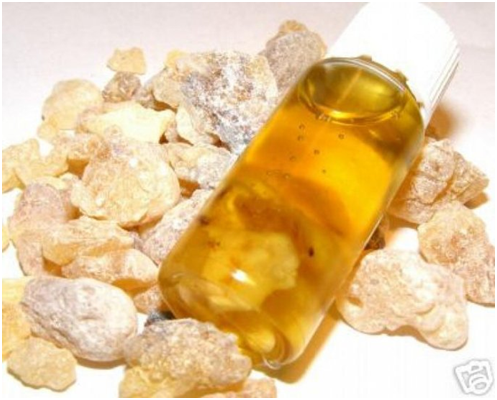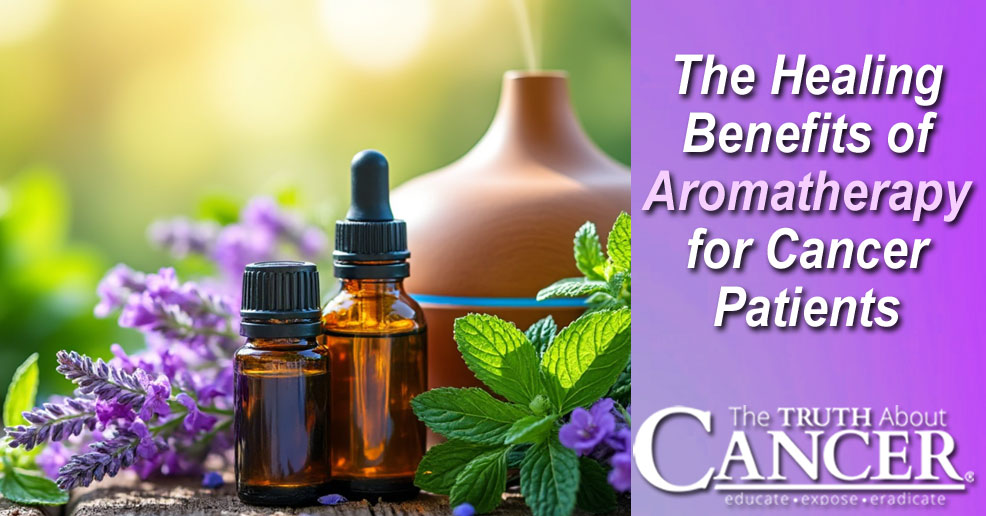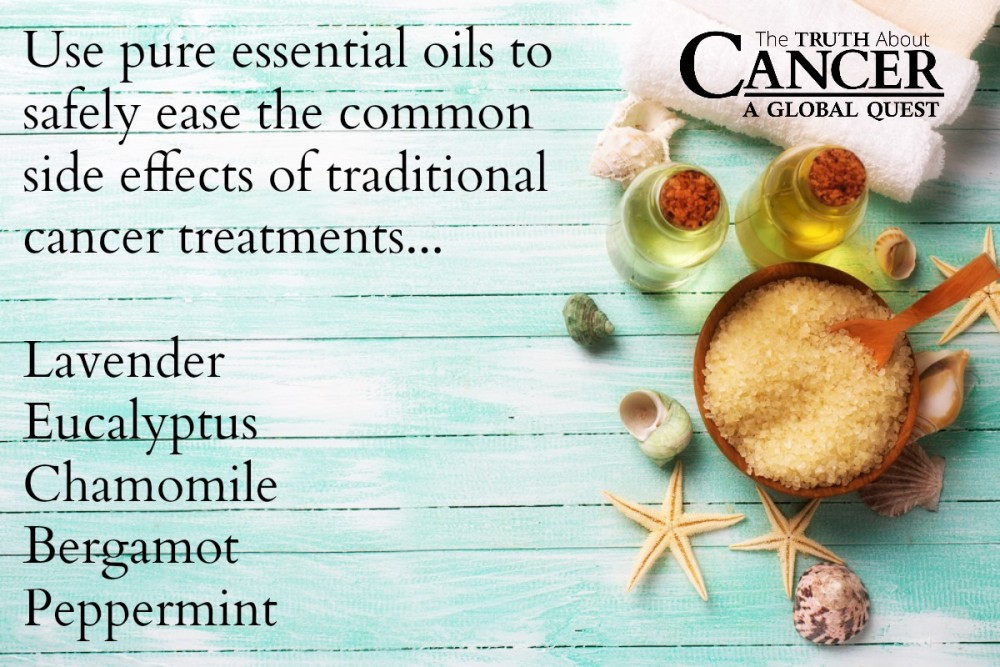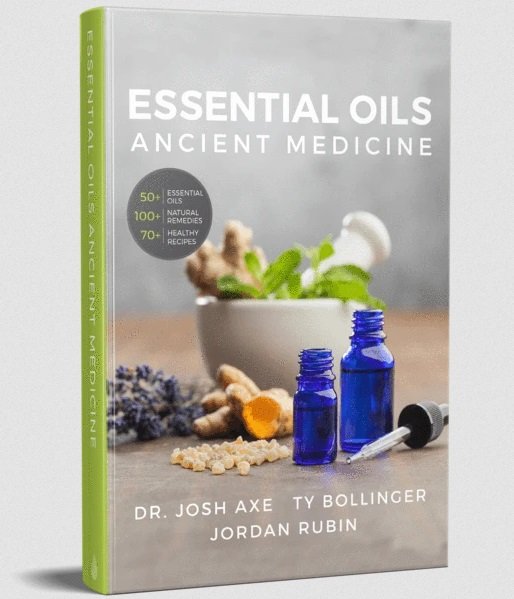Essential oils have been around since the beginning of time. Throughout history, essential oils were used to cure diseases, relieve symptoms, and help people feel better after long illnesses.
They are natural aromatic compounds found in the seeds, bark, stems, roots, flowers, and other parts of plants and have amazing medicinal properties.
However, when some people think of essential oils, they may turn up their nose. Due to the Flexner Report of 1910 and the alliance between “Big Business” and the American Medical Association (AMA), no longer are oils a crucial part of the medical curriculum.
As medicine continues to focus on drugs, prescribing a “pill for every ill,” proven remedies and traditions are falling by the wayside, and essential oils have lost some of their popularity.
Cancer patients, however, have started a new resurgence in essential oils. Through aromatherapy, many cancer patients have found relief from the dire effects of chemotherapy and those caused by their illness. They utilize aromatherapy techniques during their recovery. And as you’ll see at the end of the article, they may even use essential oil as a treatment.
What is Aromatherapy?
Aromatherapy is a natural modality that can help patients cope with chronic pain, nausea, stress, and depression. It also has been used to stimulate the immune system, fight off bacterial infections, increase circulation, alleviate headaches, soothe sore muscles, and help you sleep at night. Each oil is promoted to have specific health benefits, so patients must find the right oils for their health concerns.
Common essential oils used in aromatherapy and their health benefits include:
- Lavender is used to relieve stress, treat depression, reduce inflammation, and act as a natural decongestant.
- Eucalyptus can fight migraines, fevers, respiratory issues, and bacterial infections.
- Chamomile is a soothing essential oil that has antibacterial properties and can reduce inflammation and chronic pain.
- Bergamot is used to treat stress, anxiety, depression, skin infections, and fatigue.
- Peppermint is a stimulant that can sharpen your focus, enhance your mental alertness, and boost your energy.
These essential oils, and many more, can be used to help alleviate some of the symptoms of cancer and the side effects of allopathic cancer treatments like chemotherapy.
How is Aromatherapy Used to Help Patients Recover from Cancer?
Aromatherapy can be self-administered or administered by a professional. Many aromatherapists found in the United States are also massage therapists, psychologists, chiropractors, or social workers.
They may use the oils in their practices to help relieve some of their patients’ pain and enhance their quality of life. In the United States, you can buy the oils and a home diffuser yourself in order to self-administer your aromatherapy treatments. Essential oils can be used individually or combined for maximum benefits.
Everyone has a unique body chemistry, so different oils may work differently on unique individuals. For this reason, aromatherapy may take time to improve your symptoms. You may need to try numerous oils and oil combinations before finding an oil or a combination of oils that truly works for you.
Once you find the right oils, they can be applied to your skin or inhaled. For inhalation purposes, a home diffuser can be purchased. A home diffuser utilizes water to humidify your home and add essential oils to your environment.
You may also add a few drops of essential oils to a steaming pot of water or to your shower each day in order to vaporize the oils and inhale them.
If essential oils are applied directly to your skin, then they may need to be applied along with a carrier oil. Olive oil, jojoba oil, and coconut oil are great carrier oils that can soak up the essential oils and help your body to absorb them properly. You can also make your own creams or salves that contain essential oils to use on your sore muscles or any areas of your body that are painful.
What About Frankincense?

A 2013 study by University of Leicester researchers indicated that frankincense contains a compound AKBA (acetyl-11-keto-beta-boswellic acid) that targets cancer cells, including ovarian, brain, breast, colon, pancreatic, prostate, and stomach cancers. It has not, however, been published in a peer-reviewed scientific journal but the initial findings are very promising!
According to researchers out of Baylor University Medical Center in Dallas, frankincense helps regulate the cellular epigenetic machinery, which highlights its ability to influence genes to promote healing. As a result, they believe that it may be effective for both cancer prevention and treatment!
====
If you want the equivalent of a college level education on essential oils, get your copy of Essential Oils: Ancient Medicine by Dr. Josh Axe, Jordan Rubin, and Ty.
In this 500+ page full-color book, you’ll get expert tips and secrets to healing with this Biblical medicine. It also includes a step-by-step guide to using more than 50 top essential oils.
Editor’s note: This post was originally published in March 2015. It has been updated and republished in 2026.





















I’ve been using essential oils for years. It is vitally important to get a trusted organic food grade brand and dilution is a must too. Please advise as to trusted brands.
Hi Leslie, we agree! Always use a top-quality, medicinal grade oil. It should be certified organic, and 100% pure. Check the reputation of your supplier, and ensure there are no fillers or additives. With that said, there are many brands that fit this criteria. You will want to do research and be sure to have a look at 3rd party reviews/testing to find out which brand is for you. Dr. Eric Zielinski is a great expert on this subject. We hope this helps!
After my doctor tried to bully me into taking Acid inhibitors to stop my ulcer pain I discovered on line that refrigerated coconut oil broken into hazel nut sized lumps and swallowed whole did a better job and eventually I believe was responsible for curing the ulcer. It also said that coconut oil kills the most common bacterial cause of duodenal ulcers. Although, since the opioid debacle I have found doctors more receptive to alternative ideas.
Hi Rosemary, thank you for sharing this! And we are always glad to hear stories of doctors being receptive to natural and integrative options.
Please take care when making your own creams and salves. When mixing essential oils it could cause a toxic reaction and be potentially very dangerous.
Robert Tisserand website is also very helpful.
Hope this helps.
It is very important to understand that when diffusing essential oils in the home, considerations must be taken to make sure that none of the oils contraindicate medications of you or others that will use aromatherapy.
Also important is to know that some essential oils have ill affects upon animals and young children.
Aromatherapists recommend that a personal inhaler made of 15 to 18 drops of combined oils is the best way to make sure that this rule is not violated and to ensure the safety of all that would be affected.
Gary, thank you for your comment! We agree that all of those things are important considerations.
In 2012, my oldest daughter (a trained medical asst. w/an asso. in Science( fell while riding a bicycle in south FL., and scraped her leg. She took “normal precautions” but in 6 days was in ICU where only one dr. thought she would live. After being in an induced coma for almost 2 weeks,and surgery on her leg (thankfully W/OUT the amputation they were expecting) she left the hospital to come home. I immediately-knowing she would have NO immunity since she had sepsis-put her on Frankincense as a cancer preventive, and on Thieves Oil for any infections. She also left w/a prognosis of 1 amputation per year, and life expectancy of 5 years. In SEVEN years, she has had 3 infections-successfully treated, to the shock of her doctors. Her only explanation to her dr’s “My mother put me on Frankincense as soon as I left the hospital”. Their response” I don’t know WHAT to credit it to, but whatever you’re doing-keep doing it!” She is now married to a childhood sweetheart, living in the mountains of VT, asst. mgr of a drugstore, raising prize beagles, chickens, herbs, tapping maple trees for syrup. I thank the Lord, for the knowledge & experience I had already had, w/Frankincense and Thieves Oil, as well as other oils!
Hi Danna, wow! What an amazing testimony about frankincense and the power of essential oils. Thank you so much for sharing!
Of my! Thank you Lord. Thank you for sharing and best wishes! Way to go mama!
If one wants to use frankincense oil, it has to be pure or natural. It cannot be synthetic.
I did a number of these natural treatments, though ended up undergoing conventional chemo/radiation when my rectal tumor would not stop bleeding. At the end of this god awful treatment, my therapist referred me to an EO expert who told me to make suppositories out of pure Frankincense (10 drops in each) and insert one at bedtime. Told not to look for results until after 60 days. At 62 days, my tumor was down .7 cm, at 90 days, down another .7 cm and all the little spots that made me Stage 3 were GONE, and at 120 days, I was cancer free. Never again would I do the traditional cancer treatments as a young client of mine said: “I think you needed more time to recover from cancer treatment, than to recover from cancer.” I am at 4-1/2 years and still fighting like crazy to heal from the damage caused by treatment in ways I never would have expected.
Hi Andrea S Mannino,
If you would like to correspond with a like-minded person, please be in touch. So happy you are recovering! I don’t know quite how to exchange contact info.
Jo
Massachusetts
How do I find an EOExpert.? My niece has breast cancer and is doing keno, radiation , surgery route. She thinks she’s doing the best thing.
I read with interest your article regarding the rectal tumor. Is there anything you could add to the Frankincense treatment a person with similar situation would benefit
from .? . I’m from Manitoba ,Canada and would try to source ingredients here. Thanks